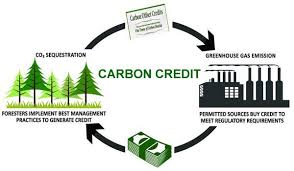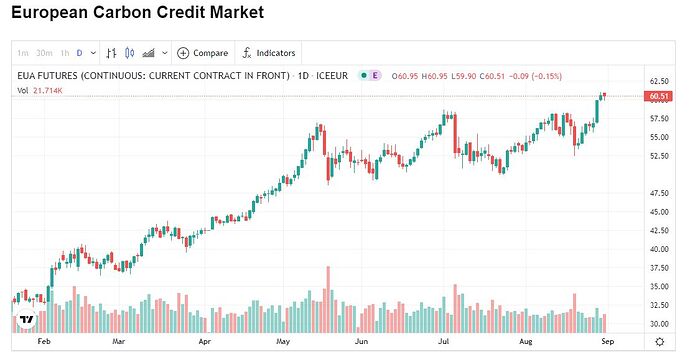An interesting fund proposition floated across my desk a while ago, well more precisely dropped into my email inbox and almost got deleted along with the many other ‘offers’ that are presented to me on a daily basis.
However for some reason, this one got saved from the immediate ‘delete to bin’ path. It’s only just now that I’ve got around to taking a second closer look; maybe I should have checked it out sooner, but with literally dozens of emails dropping into my inbox daily my hands and eyes on trading ‘up time’ is paramount with spam-type emails come way down the priority list.
Anyway, this is the headline that made me save it for a later look: “Carbon Credits – An Outstanding Risk / Reward Opportunity”. This certainly seemed a good hook line, so hats off to whoever had compiled their email shot headlines and tag lines as they’d done their homework. This had got my attention, albeit eventually.
The nuts and bolts of the offer was an attractive investment opportunity whereby this ‘as yet unnamed company’ claimed to have seen potential multiple returns, as good as 2-4 times unlevered on the upside with limited downside of 30-50%.
The climate change express train is speeding up and not slowing down any time soon, in their view, as the major governments, and especially the EU, are fully committed to change and higher pricing. The upshot of this being that carbon emissions offer a positive supply demand dynamic coupled with regulatory environment designed to increase prices.
The sales spiel developed further with a following well-crafted pitch based on the following skeleton.
The opportunity being presented would provide investors with a unique advantage in the Carbon Emissions of the EU market with an extremely improved downside risk profile. Using Dynamic Knockout Options (DKO’s) to significantly reduce tail risk and enhance what they considered to be an already interesting risk/return trade. This is enhanced by the fact that, as a limited capacity opportunity, it captures the rising carbon market, whilst shielding any fall.
Does that sound good to you? In essence the sell to be in long carbon is simply based on a shrinking supply and increasing with full strong fully evaluated explanation for this theory.
A quick scan around many other various trading sources indicates that many new investors have seen new carbon-credit-trading funds as a new gold rush. Over the last 12 months this previously unknown market has performed exceptionally. In Europe alone over the last year the price of traded carbon credits has soared more than 120%. So with just that brief perusal there is clearly a not too shabby investment opportunity in this fledgling commodity.
But is it too late? Have you missed the bus/boat/train/plane?
I think not, with even tighter government controls on the near horizon, and the prospect of an all too possible bitter European winter combined with liquefied natural gas at an all-time inventory low, thus requiring the need to burn more carbon-intensive coal playing a role I project a low risk investment is very much there for the taking.
With the inevitable increasing legislation to reduce carbon emissions across the board has there ever been a better way to profit from tighter government regulation and the simultaneous investor pressure on companies to comply? So, is your interest peeked? Do you have a view on carbon credit based investments? Would you have invested?

